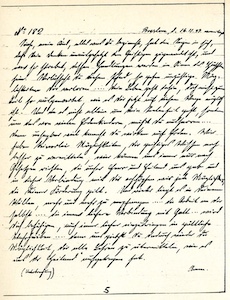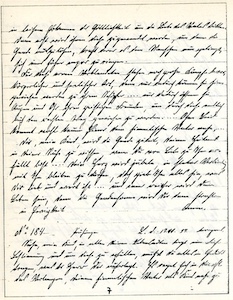B.D.-No. 2748
People become spiritually dependent if they allow themselves to be forced by fellow human beings into a school of thought which demands that they accept its teachings without contradiction, which thus deprives the human being of his spiritual freedom. The human being should certainly take note of it but be allowed to utilize every teaching offered to him without coercion, he should remain uninfluenced and decide completely freely for or against this teaching. Spiritual freedom must not be infringed upon, and man remains spiritually free as long as he is not influenced in any direction by coercion or threats to decide in his favour. As soon as he is threatened with temporal or eternal punishment, his decision is already unfavourably influenced insofar as he makes it driven by fear, and then it is invalid before God. The human being should certainly be made aware of the consequences of the right as well as the wrong earthly life, but the expression punishment or reward should never be used, instead it must be made clear to him that it is in his power to make the life in the beyond beautiful or unbearable, that he himself therefore determines the state in eternity through his way of life, that he can create incomparably marvellous things for himself, but that he can also prepare a meagre, agonizing fate for himself through his will, but that his fate in the beyond is never a punishment or a reward imposed on him by God.... for he should never strive upwards for the sake of reward, just as the fear of punishment should never determine his will and actions. But as soon as man's thoughts are directed by doctrines of faith in such a way that he leads his life under a certain compulsion, that he only carries out prescribed actions or works of love because they are, as it were, made his duty, because their omission is regarded as sin, which will bring him punishment in eternity.... if he tries to gain a reward in eternity by carrying out such actions, then his actions are no longer to be regarded as free will, the human being is rather in a spiritual dependence which makes him fulfil according to instructions what is to be done of his own accord, without fear of punishment and without hope of reward. Man should always bear in mind that he is in an unredeemed state from which he should and also can free himself if he has the will to do so, that he himself will shape his fate in eternity, but that God will never punish him or reward him for what he should or should not do for his own redemption. God leaves man complete freedom, and punishment or reward would already be a restriction of freedom for the will of man. He himself shapes his fate according to his will, and only this should be made clear to him, that life on earth has an effect in eternity so that he does not live his life irresponsibly.... However, if spiritual coercion is exercized then his free will is switched off insofar as that it is replaced by fear or hope and then the good deeds are not to be assessed as deeds of love, for completely free will is the first condition for this. Every good deed should be borne by love, and love cannot be determined either by fear or by hope for an advantage. That is why only love should be preached to people, but never should loving actions be demanded by force, which is the case when a person's actions and will are determined by the threat of temporal or eternal punishment. Love cannot be awakened by any kind of compulsion.... it must unfold in the heart and drive man to everything he thinks and does, then the will remains free and his actions and thoughts have value before God....
Amen
This proclamation is used in the following themebooks:
| Themebook | Title | Download |
|---|---|---|
| 172 | Learn to believe alive! |
|
| 187 | Doubt, fear and worries |
|










